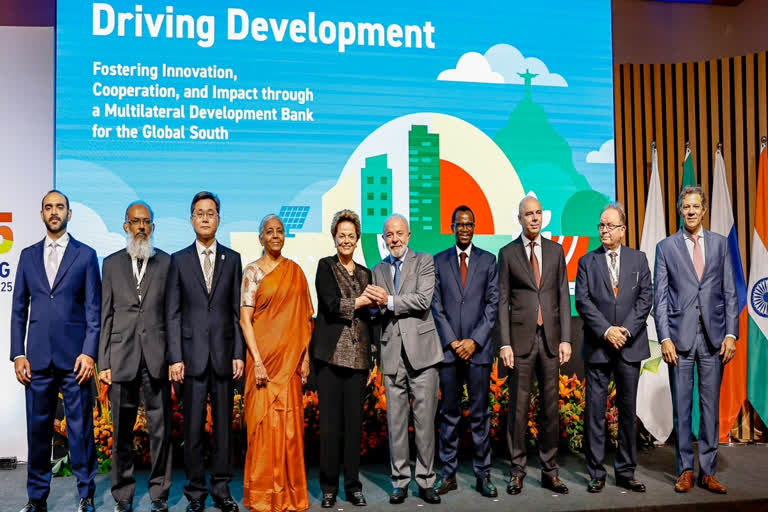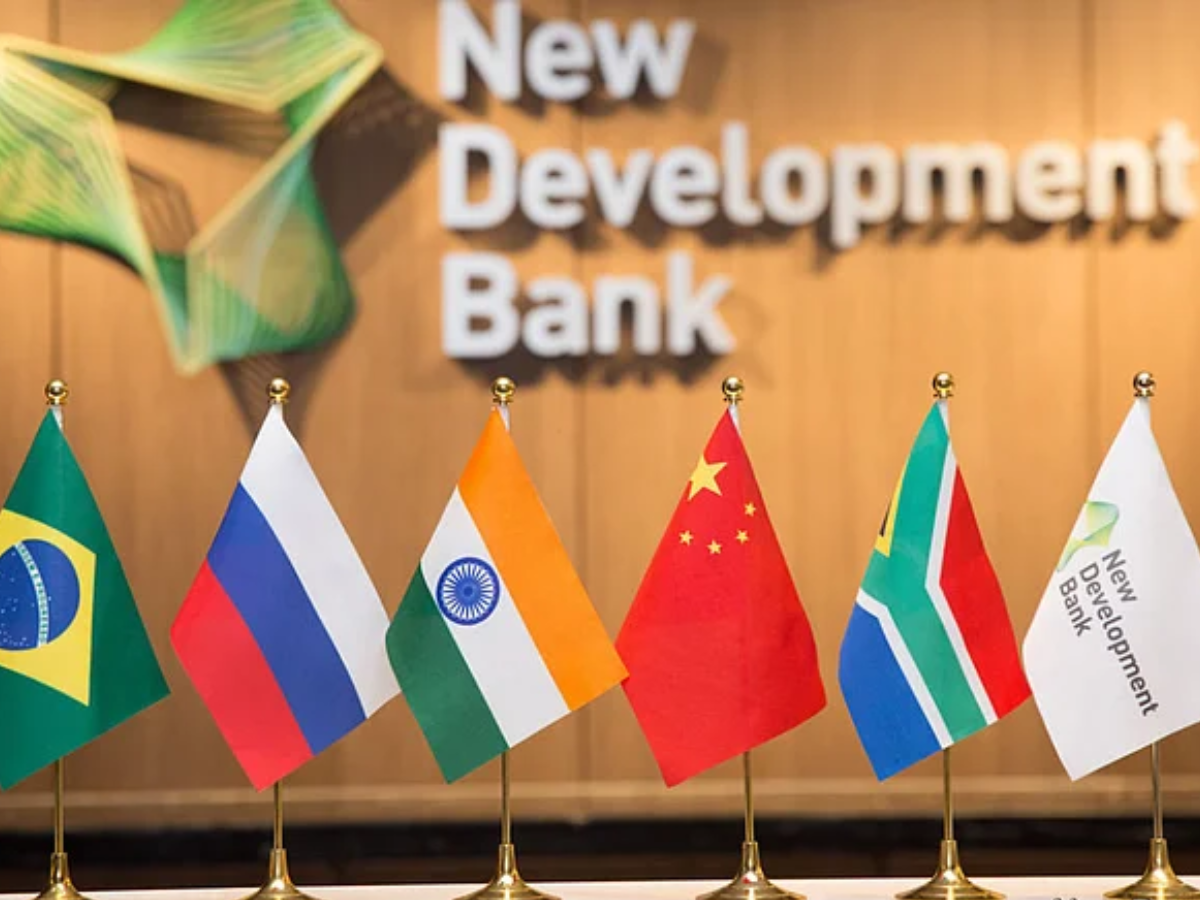India continues to stand tall as a global economic frontrunner, with Finance Minister Nirmala Sitharaman underscoring the country’s steady momentum during the tenth annual meeting of the New Development Bank in Rio de Janeiro. Her speech not only reiterated India’s growth credentials but also positioned the country as a champion for inclusive and sustainable development, especially across emerging economies.
In her remarks, the finance minister pointed out that India’s robust post pandemic recovery has been powered by a strong commitment to macroeconomic stability, the rapid embrace of digital technology, and carefully designed inclusive policies. These factors, she said, have allowed India to navigate both internal challenges and global uncertainties with remarkable consistency. India’s economic growth of six point five percent in the financial year twenty twenty five is expected to be matched in the following year, even as many major economies face stagnation or slowdowns.

India’s outlook has not only impressed global observers but also reinforced confidence among development institutions such as the NDB. The minister praised the bank’s efforts in delivering timely and context specific solutions to countries of the Global South and called for a strategic shift in its next phase. As the NDB charts its roadmap for the coming decade, Sitharaman emphasized the need to scale operations, mobilize private capital, and strengthen partnerships that are grounded in shared challenges and shared prosperity.
One of the key priorities she highlighted was the need for unlocking private sector capital. Public resources alone, she noted, are increasingly insufficient to meet the vast development needs, particularly in infrastructure and social sectors. To fill this gap, she urged the NDB to act as a catalyst, creating financial instruments and platforms that can attract private investment across borders.
Another critical focus of the minister’s address was the importance of tailored support for small and medium enterprises. She specifically called for empowering women led businesses and inclusive entrepreneurial ecosystems to ensure that growth benefits are widespread. According to her, targeted assistance for these businesses can lead to more resilient local economies and a more equitable distribution of opportunity.

Sitharaman also emphasized the need for financial innovation within multilateral development institutions. Drawing from recent global policy discussions, she pointed to frameworks like the Capital Adequacy Framework and the reforms proposed during India’s G twenty presidency. These, she said, offer actionable strategies to enhance the financial muscle of institutions like the NDB, enabling them to respond swiftly and effectively to development challenges.
India’s success stories in digital public infrastructure, renewable energy adoption, and real time governance were also presented as models that other nations could adopt and scale. From digital payments and identity systems to green technology integration, India’s experience serves as a blueprint for development that is inclusive, low cost, and highly scalable.
The finance minister concluded with a call for deeper cross country partnerships, greater knowledge exchange, and a collective vision for building resilient economies. She reiterated India’s willingness to share its insights and collaborate on global platforms that prioritize innovation, equity, and sustainability.
India’s continued focus on equitable growth, its proven economic track record, and its proactive role in global development forums make it a key player in shaping the future of the Global South. As the world rethinks the meaning of progress in an uncertain era, India is offering a model built on inclusion, resilience, and long term vision.
For more updates on India’s economic leadership, financial insights, and global developments that affect your wallet, follow You Finance on Instagram and Facebook. Stay ahead with smarter finance news, every day.















